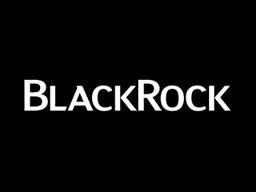

BlackRock, Inc. (NYSE:BLK) offers a diverse line of both fixed-income and equity-oriented funds, as well as smaller lines of alternative investment products and cash management services. Fixed-income and Equity funds account for 82% of BlackRock, Inc. (NYSE:BLK)’s assets under management, and cash-management services such as money market funds make up an additional 7%.
BlackRock, Inc. (NYSE:BLK) has tremendously grown its product line and geographical reach through acquisitions, most notably the acquisition of Merrill Lynch Investment Management in 2006. Even though this happened some time ago, it still has significance today. The deal gave Merrill Lynch a 49% stake in BlackRock, Inc. (NYSE:BLK), which passed to Bank of America Corp (NYSE:BAC) with the 2008 purchase of Merrill Lynch. Over the next few years, Bank of America sold its stake, first in open market sales, then they sold the last 13.6 million shares directly to BlackRock in May 2011 for $187.65 per share.
So, BlackRock owns Merrill Lynch’s investment management business and bought 7% of its outstanding shares back at a discount (today shares are worth 32.3% more).
BlackRock, Inc. (NYSE:BLK) is also a good dividend payer, currently with an annual dividend of $6.72 per share, or 2.84%. The company has an excellent record of raising the dividend, and they have done so very consistently over the past decade.

As far as valuation goes, I think BlackRock is pretty attractive at 15.4 times forward earnings, which are projected by consensus estimates to grow by 12.6% and 15.5% over the next two years.
For comparison purposes, T. Rowe Price Group, Inc. (NASDAQ:TROW) is pretty close to BlackRock, in terms of product offerings, so let’s take a look.
T. Rowe Price Group, Inc. (NASDAQ:TROW) is one of the largest mutual fund companies in the U.S. with $577 billion under management. While they don’t offer quite as diverse of a product line as BlackRock, they are very well-known and well-liked for their broad line of no-load mutual funds. Clients love these because it makes it more practical to frequently move money around between funds.
T. Rowe Price Group, Inc. (NASDAQ:TROW) looks a bit expensive when compared with BlackRock, trading at 18.9 times forward earnings with similar earnings growth projected for both companies. These are both excellent companies that are loved by their respective clients, and this is why they have been as successful as they have. BlackRock, Inc. (NYSE:BLK) just seems to be the cheaper investment right now.
To sum it up, BlackRock, Inc. (NYSE:BLK) is well positioned to increase their amount of assets under management over the next few years, which will also lead to earnings growth. The increased risk tolerance coming back into the market should result in more investments in equity funds, not to mention that as the economy recovers, the funds themselves should perform well. Being that BlackRock’s historic average forward P/E ratio is over 17, the stock still looks attractive at current levels and should have some room to grow.
The article The Best in Investment Management originally appeared on Fool.com and is written by Matthew Frankel.
Copyright © 1995 – 2013 The Motley Fool, LLC. All rights reserved. The Motley Fool has a disclosure policy.




